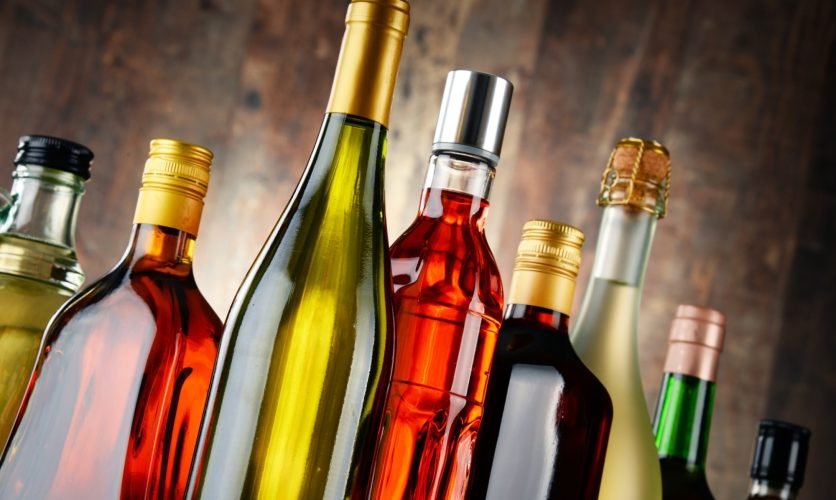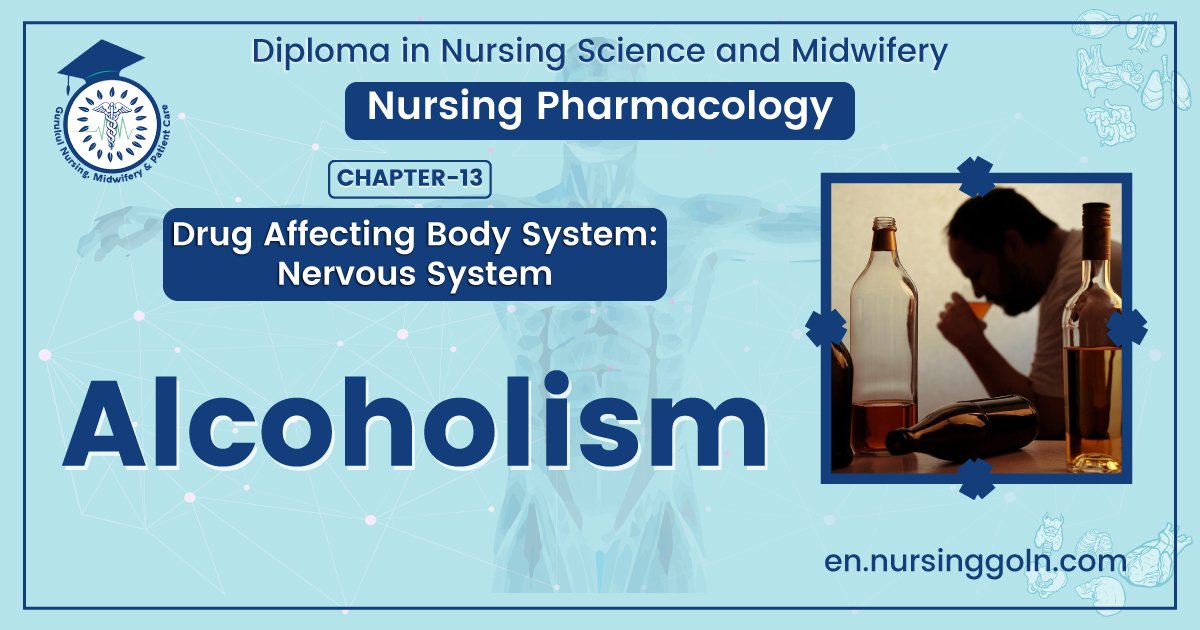Concept About Alcoholism – This book covers the entire syllabus of “Pharmacology” prescribed by BNMC- for diploma in nursing science & midwifery students. We tried to accommodate the latest information and topics. This book is an examination setup according to the teachers’ lectures and examination questions.
At the end of the book, previous questions are given. We hope in touch with the book students’ knowledge will be upgraded and flourish. The unique way of presentation may make your reading of the book a pleasurable experience.
Concept About Alcoholism
It is the most serious type of drug abuse.
It is an illness characterized by preoccupation with alcohol and loss of control over its consumption such as to lead to intoxication if drinking is begun.
Types: two types –
1. Acute alcoholism.
2. Chronic alcoholism.
Acute alcoholism: Acute intoxication with temporary mental disturbances and muscular inco- ordination.

Signs & symptoms
- Staggered gait (motor instability)
- Blurred vision or double vision
- impaired reflex action
- Reduce mental function
- Dilated pupil
- Drowsiness or stupor.
Management
If the patient is in coma, therapeutic measures are taken (insulin, dextrose, thiamine, chlorpromazine and 02 is given).
Chronic alcoholism: Pathological state from habitual use of alcohol in toxic amount.
Signs & symptoms
❖Malnutrition.
❖Alcoholic cirrhosis of livers
❖ Gastritis
❖Pancreatitis
❖ Alcoholic psychosis
❖Physical dependence & Tolerance.
Mechanism of dependence development
Chronic alcohol consumption leads to hypertrophy of hepatic smooth endoplasmic reticulum
↧
Induction of hepatic microsomal enzymes
↧
Increase alcohol metabolism
↧
Dependence develops,

Treatment of Alcohol dependence
A. Withdrawal of Alcohol:
1. If abstinence syndrome: It should be controlled by psychotherapy and tranquillising drugs, e.g. Diazepam. Phenothiazides. Chlormethiazole.
2. If abstinent alcoholic is considered in danger of relapse: Give oral Disulfiram 0.5 gm/day.
B. i/v vitamins (vit-B1 and vit-C) to correct deficiencies.
